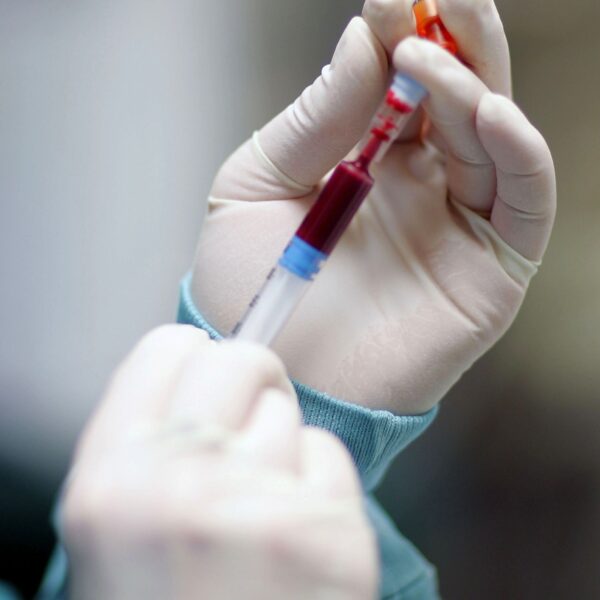The Elusive Blood Type: Rajkot Man’s Rare Negative Group Adds to Global Rarity
3 min read
Introduction
rajkotupdates.news:emm-negative-rare-blood-group-found-in-rajkot-man-11th-such-case-worldwide :In the world of blood typing, certain groups are considered rare and elusive. Among them is the Rajkot man’s blood type, a negative group that has recently garnered attention due to its rarity. This fascinating case adds to the global scarcity of such blood types, highlighting the importance of blood donation and the need for diverse blood supplies. In this article, we will explore the Rajkot man’s blood type and delve into the significance of rare negative blood groups.
Also read : wellhealthorganic.com:5-amazing-health-benefits-of-guava
Understanding Blood Types
Blood types are classified into different groups based on the presence or absence of certain antigens on the surface of red blood cells. The ABO system categorizes blood types into four main groups: A, B, AB, and O. Additionally, the Rh system determines the presence or absence of the Rh antigen, leading to two possible outcomes: Rh positive (Rh+) and Rh negative (Rh-).
The Rarity of Rh Negative Blood Types
Rh negative blood types are relatively rare worldwide, rajkotupdates.news:emm-negative-rare-blood-group-found-in-rajkot-man-11th-such-case-worldwide :I with an estimated prevalence of only around 15%. These blood types are characterized by the absence of the Rh antigen. Within the Rh negative group, further rare subtypes exist, adding to the complexity and scarcity. One such subtype is the Rajkot man’s blood type, which has gained attention due to its unique characteristics.
The Rajkot Man’s Blood Type
The Rajkot man, whose identity remains anonymous, has an extremely rare Rh negative blood type. The specific subtype is yet to be determined, but it is believed to be one of the rarest within the Rh- group. This discovery has sparked interest among researchers and medical professionals, who are eager to study this blood type in more detail.
Importance of Diverse Blood Supplies
rajkotupdates.news:emm-negative-rare-blood-group-found-in-rajkot-man-11th-such-case-worldwide :IHaving a diverse range of blood types is crucial for effective blood transfusions and medical treatments. While the demand for blood is constant, the availability of compatible blood can be limited. In emergency situations or cases involving patients with rare blood types, finding a suitable donor becomes even more challenging. Therefore, individuals with rare blood types, like the Rajkot man, play a vital role in ensuring a sufficient and diverse blood supply.
The Significance of Blood Donation
The rarity of certain blood types highlights the importance of blood donation. Regular blood donations are essential to maintain an adequate supply of all blood types, including the rare ones. By donating blood, individuals can contribute to the well-being of their communities and potentially save lives. Moreover, those with rare blood types are encouraged to become regular donors to help others in need of a compatible match.
Advancements in Blood Typing Technology
Technological advancements rajkotupdates.news:emm-negative-rare-blood-group-found-in-rajkot-man-11th-such-case-worldwide :I in blood typing have made it easier to identify and categorize rare blood types. Laboratory techniques, such as DNA testing and advanced serological methods, allow for more precise and detailed blood typing. These advancements aid in the identification of rare subtypes and contribute to our understanding of blood diversity.
Collaboration and Research Opportunities
Also read : wellhealthorganic.com:5-amazing-health-benefits-of-guava
rajkotupdates.news:emm-negative-rare-blood-group-found-in-rajkot-man-11th-such-case-worldwide :IThe discovery of the Rajkot man’s rare blood type presents a unique opportunity for collaboration between researchers, medical professionals, and blood banks. This case encourages further research into rare blood types, their origins, and potential medical implications. Additionally, it highlights the importance of maintaining comprehensive databases of blood donors and their specific blood types to ensure quick access to compatible blood when needed.
Conclusion
The Rajkot man’s rare Rh negative blood type adds to the global rarity of certain blood groups. This case underscores the significance of diverse blood supplies, the importance of regular blood donation, and the advancements in blood typing technology. As we continue to explore the complexities of blood types, research and collaboration remain crucial to improve our understanding and ensure the availability of compatible blood for all individuals in need.







